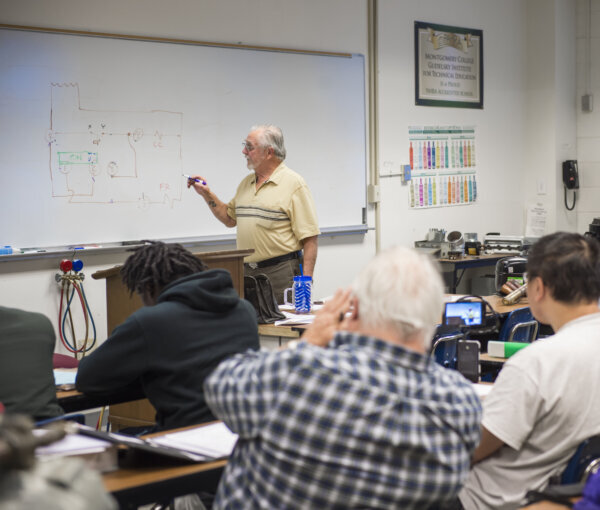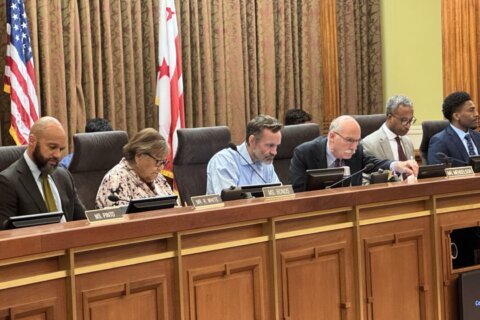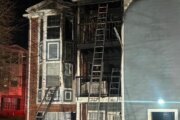Homeowners who have waited for this heat wave before thinking it might be time for an HVAC tuneup could find themselves sweating before their technician can arrive.
Warren Lupson, an adjunct professor at Montgomery College’s heating, air conditioning and ventilation department, with 50 years of experience in the HVAC industry, told WTOP, “It’s kind of crazy when you wait until the hottest day of the year (before getting your system tuned up and checked out).”
But, Lupson said, it’s not uncommon.

And Lupson said, in his experience, tempers could flare when heat waves hit and the AC goes out.
He explained, if customers calling for service in the winter were told it could be days before a tech could arrive, they’d usually take that news pretty well. But, “in the summertime, if I told you we couldn’t get a technician out to your house for three to five days or a week later, they would curse out our customer service reps.”
What do you do to take care of your AC?
Lupson said routine maintenance is critical for HVAC systems. A twice-yearly inspection and servicing is recommended.
When choosing a technician, he said to make sure they are qualified.
“You want to make sure the companies you’re using are licensed and insured for the location they’re in, because Maryland, D.C. and Virginia all have a different license and some different requirements,” said Lupson.
What can homeowners do to make sure they get optimum service out of their HVAC system?
Single-family homeowners whose HVAC compressor is located outside should make certain they are not blocked in any way.
“At all times, an outdoor unit should be kept clean,” Lupson said.
There should be no buildup of grass clippings, wet leaves or other debris on the unit; that can restrict air flow and hurt performance.
Lupson also said to make sure there’s a clear space around the unit — don’t crowd it with plantings.
“I always tell people you want to leave enough room for a service technician anywhere around that unit to be able to squat down and work,” he said.
Inside the home, Lupson said if you want to keep things cool, be sure you’re not getting in the way of good airflow by putting furniture in front of or over registers and covers. He said he constantly found couches blocking registers, and homeowners would be shocked when he showed them how much cool air was being lost to their furniture which was sometimes chilly to the touch. In effect, the system was “cooling the fabric of the couch, and not cooling you,” said Lupson.
Consider your filters
Lupson recommends changing air filters in your home frequently — don’t wait until they are clogged. And be careful about what kind of filter you buy.
It’s tempting to get filters with the highest rating for filtering out impurities, but he said, “The problem is, it puts a lot more strain on the motor that’s inside the unit that’s pushing the air throughout your house, and if that’s the case, you’re causing the motor to run harder” and putting a real strain on the system.
Check the manufacturer recommendations for filters — or ask your tech — what “MERV” rating is recommended.
“MERV” stands for the minimum efficiency rating value and is based on the filter’s ability to capture air particles of varying sizes. Older HVAC systems could be strained by filters with the highest MERV ratings.
On blazing hot days with high humidity, it’s not uncommon for homeowners to want get home and crank up the AC. Lupson says, “Don’t.”
He said that pushing for a steep drop in indoor temperatures can strain the unit.
“The unit’s only capable of doing so much.”
He explained that HVAC systems are designed to remain 12 to 15 degrees cooler than outside temperatures “when we’re up in those high 90s,” so instead of trying to get the indoor temperature to plunge on a hot day, check your thermostat and “set it to where you like it — and leave it there.”
One last tip that doesn’t require an HVAC tech, he said, is to “close your shades” or blinds.
It’s a simple act that can really help reduce the temperature and give you and your HVAC system a bit of a break.
Get breaking news and daily headlines delivered to your email inbox by signing up here.
© 2024 WTOP. All Rights Reserved. This website is not intended for users located within the European Economic Area.








